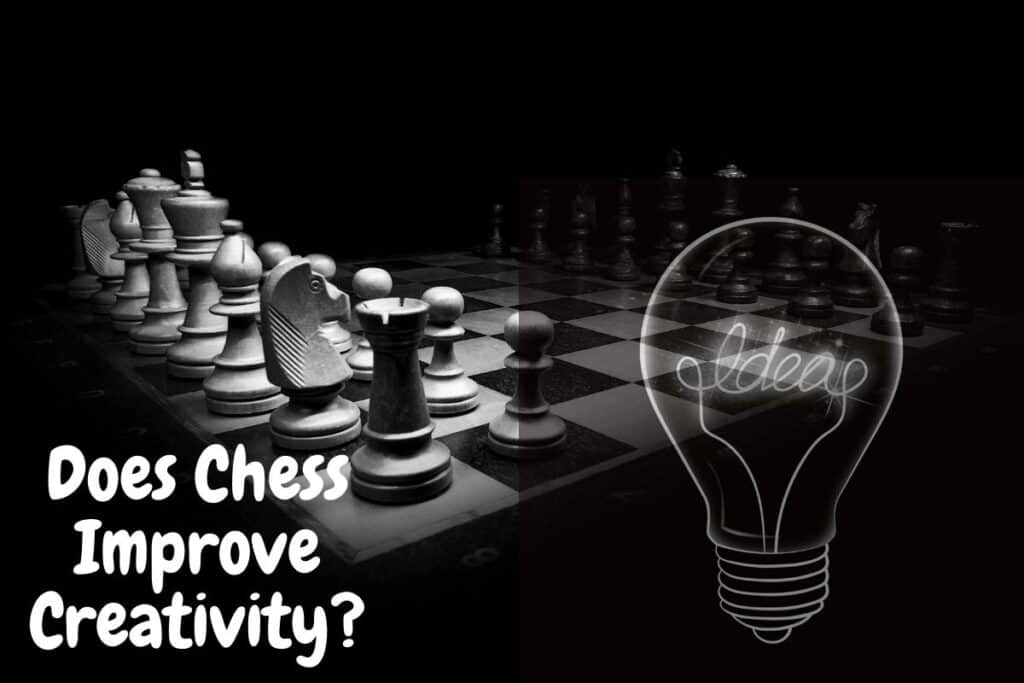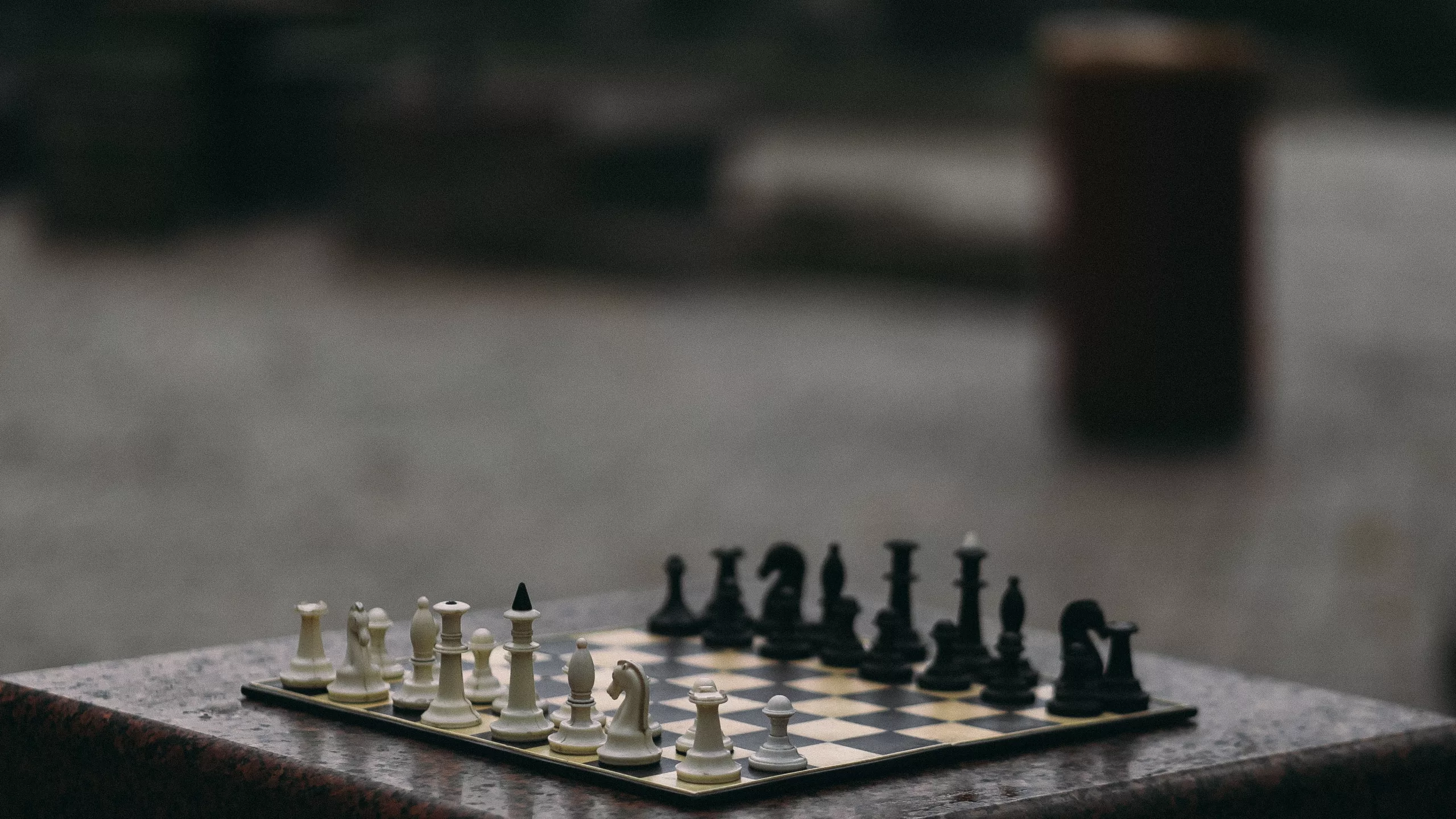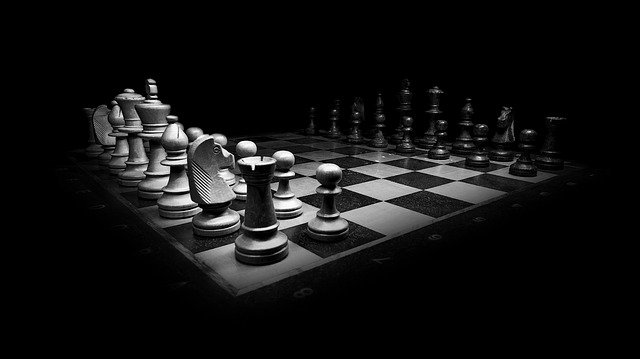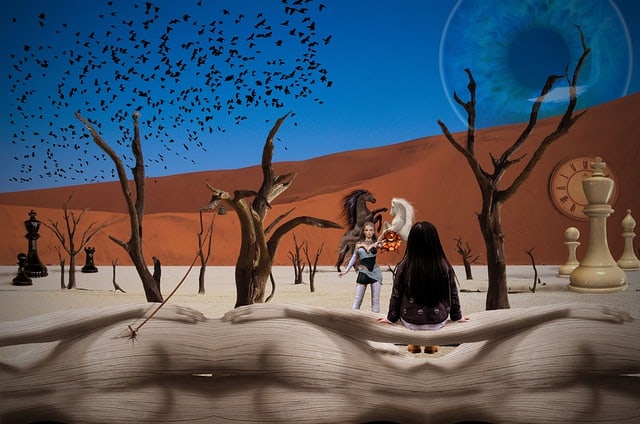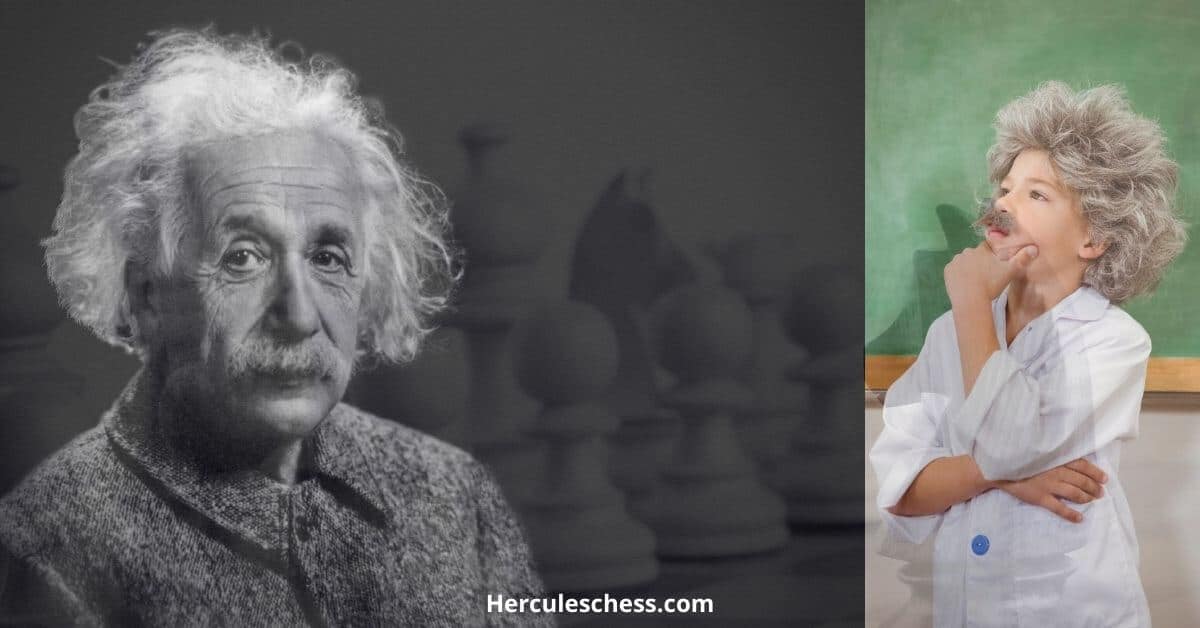Chess absolutely improves a person’s ability to be creative. When people think about the skills that the game of chess can improve things like logic or focus come to mind. Although these skills are needed for the game and honed over time, so is creativity. People who participate in chess, especially those who spend a lot of time playing and practicing to get better at the game also become more creative over time.
Chess and Imagination
From an outside perspective, chess does not seem to lead to great use of imagination or creativity. If you are not a regular chess player you may have a certain stereotype of those who do play and love the game. This stereotype can include people who are incredibly focused (perhaps single-mindedly focused), people of very high intelligence, and those with well-above-average logic skills. Someone who plays the game may have some if not all of those characteristics.
Even if someone is very intelligent and loves logic, why would that preclude them from also being creative? Just because chess is not something you typically think of as creative arts like writing, painting or singing, does not mean creativity is not built while looking at the chessboard. In fact, if you stop to think about it you will see how much it makes sense that people would become more creative when trying to master this game.
Picture a chessboard in your mind. It is a simple board with 64 squares. Now picture the pieces, and think about what you can do with each one. There are specific pieces, and each piece has specific rules on what each one can and can not do, how they can move, and what their vulnerabilities are.
To get good at chess you need to have a vision. While that vision does need to include the rules of the game, it also needs to come up with a path to victory. This path will take into account not just the rules and what you can do, but what you think your opponent will do and how to counteract their own vision and creativity to come up with a win at the end.
Chess and Patterns
The more time and energy a player puts into chess, the more easily they will be able to see patterns on the board – anything from the basics of how to pieces move, to watching their opponents take several turns and seeing a pattern of their gameplay to accurately guess which moves they will do over the next several turns.
The player’s opponent is doing the same as well, so when one player does something unexpected the other player will also need to either respond with unexpected gameplay or they will allow the game to slip away.
In the beginning, people will learn the basics of the game and how to move the pieces. As time goes by they will learn to add in new and different strategies to ensure they win at the end. Eventually, they may even use specific and famous chess strategies. This will lead them to some creative thinking of their own.
Why did a specific chess player come up with the strategy they are famous for? What made them think that their out-of-the-box or creative thinking would work? How did they see these patterns or possibilities? How can they think in the same or similar way to come up with their own creative and new strategies to win?
As a player starts to think in this way they are beginning to start the process of their own creativity with this exceptional game. Although asking questions and analyzing others’ work seems to be more on the logically and scientific or ever just curious inquiry on figuring out how a process took place, but in reality, this is also how creativity starts.
Think about anything in the arts that you love for their unique vision or because it almost seems like they threw away the rule book to create something. Regardless if this is a book, a work of art, fashion, stationery, or even a recipe – they all started in the same way. They saw something they wanted to do, saw how others were doing similar things, analyzed others’ work, and asked questions on how they did something and why they could not do something kind of similar or very, very different.
Once they came to this conclusion they took the leap and started thinking of all the possibilities and trying them, one by one. Sometimes they worked, oftentimes they do not – but creativity will eventually create genius and beauty – whether it is in a logical game of chess and the strategy we use or a new story structure used to tell a character arc in a television show.
The Importance of a Creative Mind in Chess
Creativity is not only a bonus side effect of learning how to play chess well but it is also a very much needed skill. Everyone who plays the game knows the basic rules. When you are playing against players at the same level as you, you will both understand and have memorized specific chess strategies. Without the ability to be creative, you will not succeed or advance in chess.
Not only using your creativity but actively honing this as a skill and weapon in the game, will allow you to see what others cannot. Many chess players do not embrace the creative side of the game and look at creativity as a negative attribute and would rather solely rely on logic and reasoning. A good player has to understand that creativity, imagination, logic, and reasoning all need to come together and work in harmony to create good gameplay and impressive strategies.
Accept Creativity and imagination in your gameplay and allow yourself to use these skills as much as the others and then you can truly think of patterns and strategies you have not otherwise seen and ask yourself why can’t you do a specific move or series of moves. Is the fact that you have never seen someone else do that before really a good reason why it can not be something you try?
Chess can improve your creativity. A good chess player understands their creativity and utilizes it in the game. A great chess player knows how to balance creativity, imagination, analysis, pattern recognition, problem-solving, strategic thinking, logic, and reasoning.
